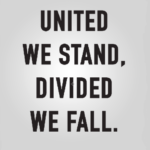Europe used to be divided into many feuding kingdoms, duchies and republics. Europe used to be like that almost all of the time. The kingdoms and duchies and republics would wage wars and play havoc with each other’s property and population. Yet, at the same time, in the modern era that began with the first geographical discoveries, it was these warring European countries separately that started to explore the world outside the Old Continent, establish colonies and subdue almost the whole rest of the globe. It was not only France, England (later the United Kingdom) or Spain that took possession of vast territories in the Americas, Africa and Asia; it was also such small countries as Portugal, the Netherlands, and Belgium. They each acquired overseas territories that were many times larger than the home country of the conquerors. The people of the colonial countries spilled over to the colonies, populating them and developing there economy along with advancing some degree of education. The European colonial countries did not stop warring with one another during the time of subduing the other continents: conversely, they clashed militarily not only on the Old Continent, but also in the new territories, which sometimes led to the change in ownership but never ever weakened the colonial European states. True, the American dependent territories became independent of the United Kingdom, Portugal and Spain, but they continued to expand and exist just as their former European overlords.
Today all those European countries are united because their managers claim that unity translates into strength. Now, where is this strength? Europeans have long withdrawn from Africa and Asia as colonial powers and have stopped populating those continents. Conversely, Europeans are being colonized by people from Africa and Asia. Today, former colonial powers have heads of states from the Third World while their indigenous populations live in constant fear of the arrivals whose constant influx is unstoppable. Non-Europeans transform parts of the European countries where they have settled and no one in his right senses can say that this transformation is for the better. When Europeans settled in the Third World countries, the transformations were for the better without a shadow of a doubt. Think of all the technology, infrastructure, agriculture, medicine, literacy and, and, and. Of course, the transformation did not benefit all the indigenous inhabitants at once, but then it was a time that also most Europeans did not enjoy all those benefits to the full on the Old Continent.
Let us come back to the titular question: where is this strength of a united Europe especially as compared to the previous centuries? Before the Second World War the United Kingdom alone controlled the whole of India (at that time that term referred to the combined territories of present-day Pakistan, India and Bangladesh), not to mention a quarter or so of Africa. Today the United Kingdom has a Hindu prime minister while the UK’s capital has a Pakistani mayor. Belgium used to control a huge chunk of Africa known as the Kongo: today, though Belgium’s capital is concurrently the capital of the European Union, Belgium is an insignificant country on the international arena while one third of its capital is populated by Muslims who turn their boroughs into extraterritorial areas. France used to control a third or so of Africa and the whole of Indochina; today, the indigenous French people live in fear of the aliens from France’s former colonies and are exposed to repeated tsunamis of street violence complete with shop window smashing and car torching. Yet, Europe is united. It has become united to be strong and influential. At least that’s what is said. It has turned out, that it has become united only to fall easier prey to whoever pleases to grab for it. The agreeableness of Europeans, their welcoming culture and readiness to apologize for all real and made-up crimes of their predecessors of whom an average European has no idea exposes them to predators and parasites.
The phrase, United we stand, divided we fall (attributed to Aesop), has been misinterpreted. It only works for natural unions like those uniting people of the same ethnicity. Beyond that its application is maladaptive because it is in struggle and fierce rivalry that we grow stronger (or perish, as the case may be). A union or alliance of forces is as debilitating as shared ownership in that in either case no one cares about the whole and everyone expects the other participant (ally, co-owner) to do the brunt of the job. We know this famous saying: what belongs to everybody, belongs to no one. The same may be said about unions: they are a kind of shared possession of strength and resources and decision-making and what not: manifestly and demonstrably ineffective. Rivalling nations reflect the economic forces on the free market: they cause products to be better and better and at the same time cheaper and cheaper. A monopoly brings about stagnation, lack of incentives and ultimately death. Which is what we are seeing in the Western world. Unless you want to tell me that France or Great Britain or Spain or Belgium are now – acting in unison – more powerful than they used to be a hundred years back when they each acted on its their own, which goes counter to historical fact invoked above.




